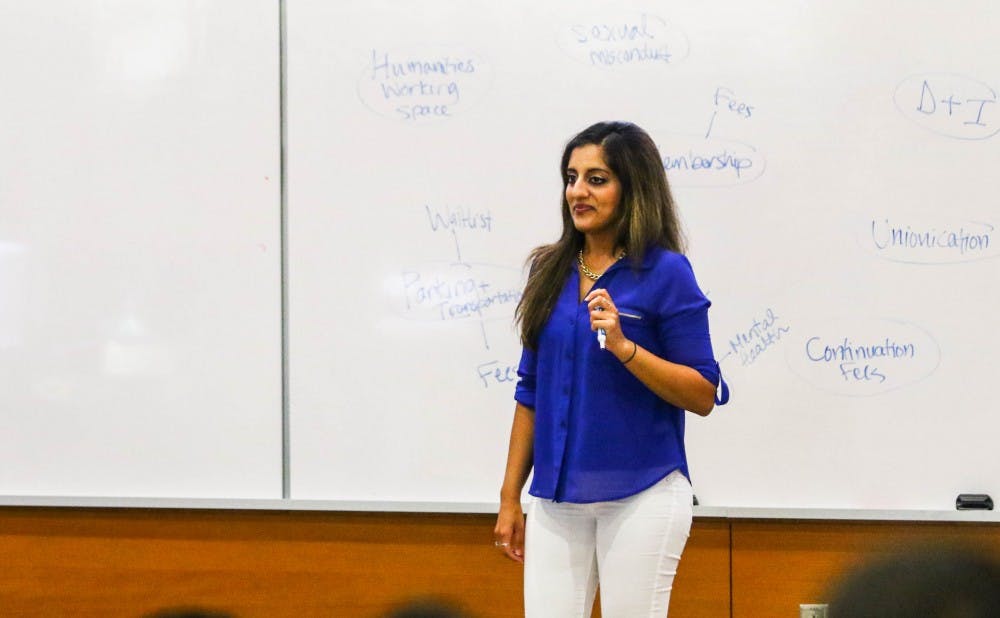The Graduate and Professional Student Council announced plans for a student-led financial aid initiative during their meeting Tuesday.
Led by GPSC President Marcus Benning, Trinity '14 and a student at the School of Law, the OneDuke Access Fund hopes to provide $200 grants to six graduate and professional students each month. Funding for the program, if approved, will be available to students who require emergency financial access to food, a professional wardrobe, travel funds or school supplies.
Rather than voting on the proposal immediately, however, Benning prompted a discussion amongst attendees. He indicated that any concerns expressed would be addressed during their next scheduled meeting.
“This is obviously a complex idea, and launching financial aid initiatives requires a lot of work,” Benning said. “So we got the plan vetted by [Larry Moneta, vice president of student affairs], the billing department and other areas to verify that this idea was actually viable and that we could do so while protecting student privacy.”
Under the program’s current structure, Benning said, students can submit an online form through which the six applicants each month are chosen. After selection, students work with the University Center Activities and Events department to receive the grant.
In order to prevent abuse, Benning said, students will only be awarded a grant from OneDuke once. Students who are not selected will be given further advice and are encouraged to apply the next month.
“The other students will receive what’s called a resource email, where we’re going to point them to contact information for financial aid officers and help come up with some other creative funding sources for them," he explained.
Benning noted that one of the key features of the program is that it does not require students to submit verification of their financial situation, something he said could help ensure student privacy.
“We thought long and hard about [privacy] because originally we were going to request financial documents to prove need,” Benning said. “We scratched that totally and completely because of privacy. We've only asked for very minimalist information, so most of it is contact information and then a brief blurb about why you need the funds."
Benning explained that the DukeOne fund is “revolutionary” since it is a student-led fund for student needs. If the current plans are approved, he said, the fund will total $30,000 and is expected to last for three semesters as a pilot program.
Based on the discussion at the meeting, however, Benning said that he plans to incorporate several new ideas. Among those discussed were making student selection a random process rather than “first-come, first-serve” and potentially adding other categories to the reasons for which students may apply.
“The program is in its infancy,” Benning said. “As we see how the program works, we can add more categories.”
In other news:
GPSC voted on two bylaw changes with the aim of creating task forces to solve common student issues. These groups will allow any graduate student to join, explained Jose Vargas-Muniz, director of university affairs and a Ph.D. student in the department of molecular genetics and microbiology.
The General Assembly approved 13 new task forces to address student concerns, including: voting, sexual misconduct, sustainability, finance, student disabilities, facilities, continuation fees, mental and physical health, dental health insurance, parking permits, the Duke Vans service, alternative transportation services and gym memberships.
Get The Chronicle straight to your inbox
Signup for our weekly newsletter. Cancel at any time.

